Peng Qingyu: Art and the Notion of Home
Born and raised in Suzhou, China, Peng Qingyu (彭青羽) '23 is a junior at NYU Shanghai studying math. Though, they are most often found squatting on the streets of Shanghai or the in the IMA Lab sketching. As their heart lies in the arts, they have dabbled in photography, sculpture, and everything in between.
Photo by: Peng Qingyu '23
Qingyu’s first memory of making art was in kindergarten, drawing lily pads and butterflies in class. Ever since, they have pursued creative ways to engage with everyday objects and nature.
In high school, Qingyu shifted their focus from drawing to photography. They traveled around Suzhou hunting for abandoned buildings, construction sites, and places “where people are not supposed to be.” The goal was not trespassing, but to understand how things end up in places they do not belong. The question of this art era: why? Why are these objects here? Why are these plants here? In one instance, when surveying an abandoned factory with an electric box surrounded by water, they recalled, “why is there a lake in the middle of a factory?” Around the electric box itself were plants, growing in the middle of an abandoned factory, surrounded by water.
They find themself drawn towards these spaces because you can see different forces interacting together. They have found a specific photographic niche within objects scattered across Suzhou: chairs. Chairs tied to river banks, chairs being used in abandoned places, chairs left behind. Other than chairs and their representation of humans existing outside of norms, Qingyu’s photography examines nature’s rebirth in spaces previously dominated by human touch. They photographed plants and flowers growing out of crevices one can imagine a tiny pond of tiles with plants growing out of it. They aimed to capture “the fascinating and not normal” scenes that exist in the most ordinary of places.
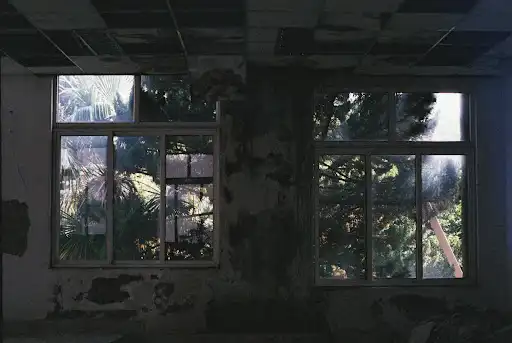
Discarded Classroom
Photo by
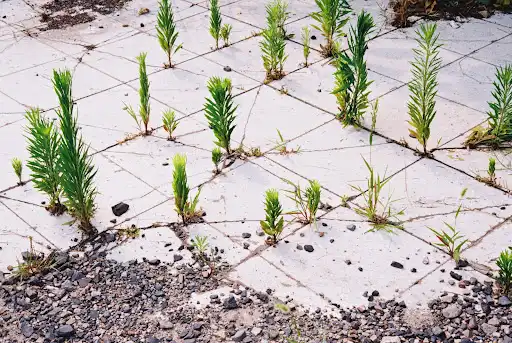
“瓷砖池塘” A Pond Made of Tiles
Photo by
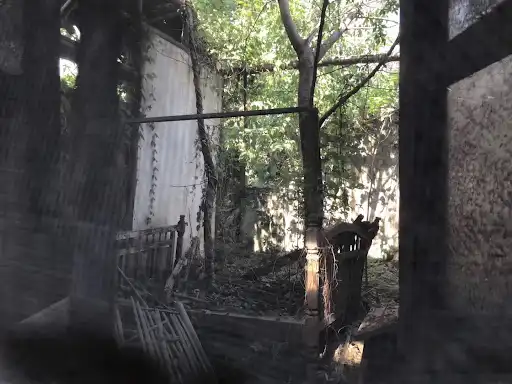
Qingyu’s new chapter of photography focuses on using their two, self-proclaimed, poor-quality cameras to produce an eerie, supernatural feeling by using excessive amounts of flash. They view the strong flash, used even during the day, as casting unnatural shadows, facilitating a certain flatness to their subject, and resulting in an over-exposed subject.
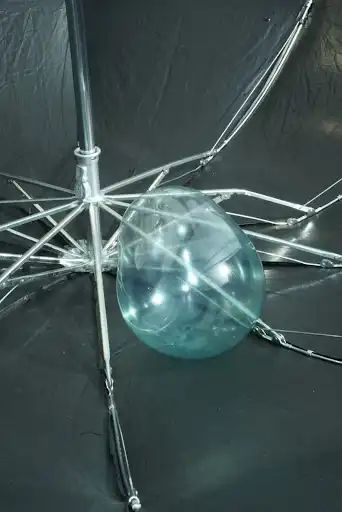
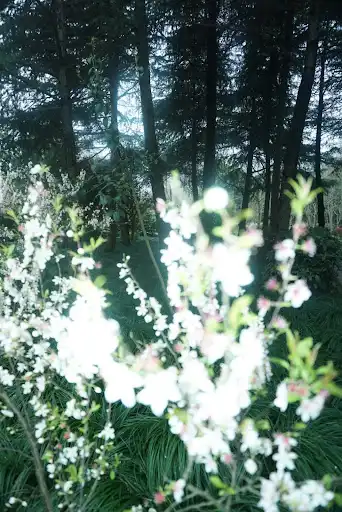
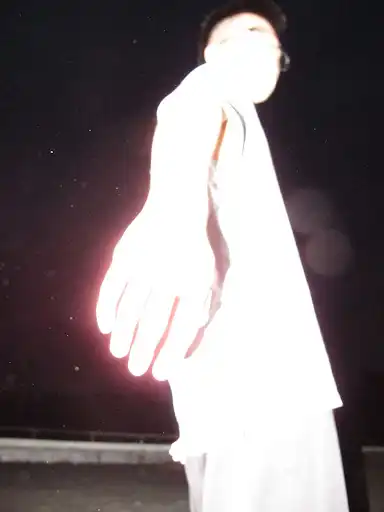
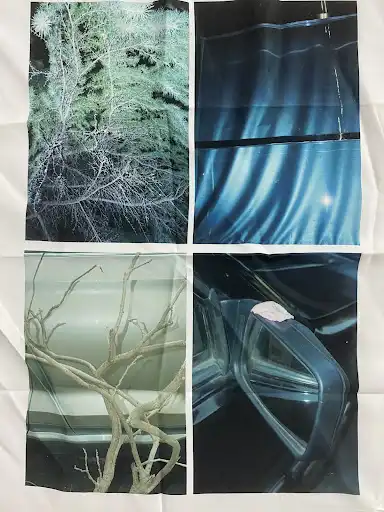
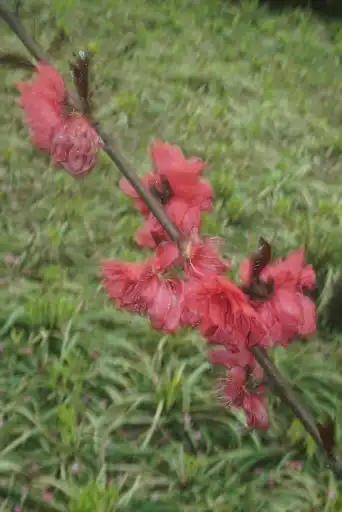
At the beginning of the Fall 2021 semester, Qingyu ventured beyond photography and dabbled in sculpting after being commissioned to construct three statues. For the project, they used 7kg of newspaper, lots of gauze, and many meters of wire. Given this was their first human-sized project, Qingyu looked for inspiration from their experience working at Temporary Park (临时公园) this past summer.



Photos of the Sculptures Being Made
Temporary Park was a community mutual aid project they collaborated on with the founder, Liu Yuqing (刘雨青). There, Qingyu was a teacher, volunteer, and participant of Temporary Park’s experimental space. The goal of Temporary Park was to create a space where everyone was doing whatever they wanted, and it succeeded. The physical space was filled with herbal dye, fabric, and spare pieces of wood, perfect for a group of artists looking to try out an experimental program throughout their summer together. The group spent three days weaving a three-meter carpet using recycled clothes and self-dyed fabric in between their many group dinners and outings.
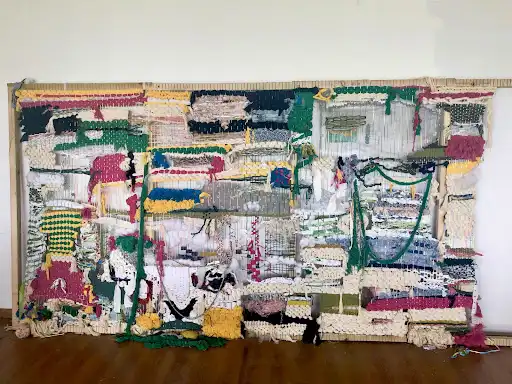
Carpet Weaved by Temporary Park
Photo by
Currently, Qingyu is working on a multi-media project to understand the notion of home, specifically the disconnect between them and their various homes. As they were born and raised in Suzhou, they feel little connection to the hometown from their ID card that their parents took them to once or twice a year: Liyang (溧阳). Conversely, their parents feel a deep connection to Liyang and often tell Qingyu stories about tending to gardens or playing with their friends. Though for Qingyu, similar memories took place around Suzhou. In Liyang, they remember the family reunions where they recognized only two or three faces and looked for directions as to how to greet others.
Past generations of their family hailed from Peng Jia Cun (彭家村), the same city their last name hails from. Until Qingyu’s generation, each generation shared a family character in their name. To face the disconnection from their home head-on, they are fabricating a collection of memories of Liyang. They have built a chair out of Osmanthus wood in honor of Liyang’s Osmanthus trees and to memorialize a home that was never theirs. The project will also feature photos and collages to create memories of home in their own mind. Their conflicting feelings towards Liyang, the need for the romanticization of their hometown, and their blunt dislike for their visits to Liyang culminate in their project.
Feeling estranged from their home(town) is not a new feeling for Qingyu. In high school, Qingyu and their mom moved to an apartment closer to their high school in preparation for the Gaokao (高考). When they went home on the weekends, their room was a testament to a different time in their life. But, their bedroom in their first home is also what they think of when they think of home. They would do their homework there, waiting for their parents to return. Home was when their Dad got home and turned the hallway light on, then when their Mom returned home she would turn it off. Though the process of reconciliation for their feelings of estrangement has since been completed, they remember sitting on their bedroom floor thinking “I don’t have a home anymore.” Yet this feeling of a loss of home exists for many Chinese youth moving from home to home and city to city. For Qingyu, home is now a feeling. Home is no longer necessarily a space. You grow with that space, and sometimes you long for it, even when returning to it makes you feel no longer a part of the space.
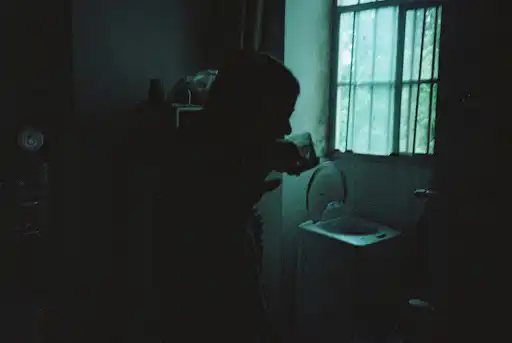
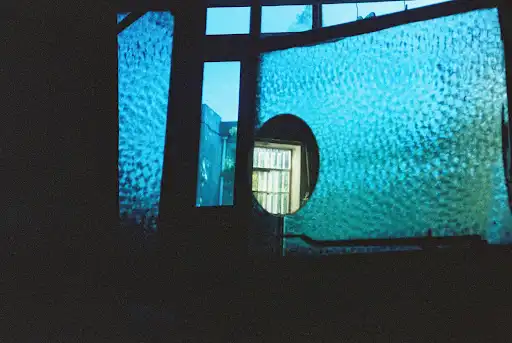
These images were shot on 35mm film.
Qingyu views their art, not as art, but as just one of the things that you can do in everyday life. To them, art is something that others have labeled their projects as. It is no more worth mentioning than anything else they do.